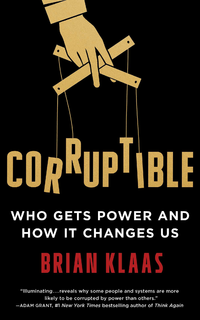Post
- Post
“Italy's railroads were in a sorry state after World War I. But most of the investments made for their repair and reform occurred before Mussolini took power. Once he became a dictator, Mussolini focused on vanity infrastructure, creating ornate train stations on rail lines for the country's elite, while ignoring commuter trains that served the masses. Hundreds of people died in construction projects under Mussolini-and most of the trains still didn't run on time. For the trains that did run on time, the decisions made by Mussolini's predecessor played a much-bigger role in making that possible. Nonetheless, the Italian fascist did what so many in power do masterfully: he took credit for decisions made by others. If you only focus on surface-level results without examining the underlying context or the decision-making itself, you’ll end up reinforcing bad behavior rather than deterring it.” -Brian Klaas, Page 198-199
